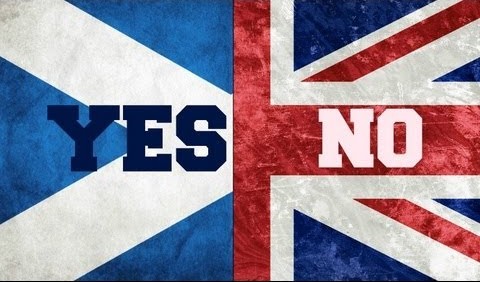Luke O’Reilly ¦ Contributing Writer
On this past Saturday, September 13th, the Orange Order marched through the streets of Edinburgh. The march was intended to be both a celebration of Britishness and an appeal to the people of Scotland to remain within the United Kingdom. The organisers estimate between 10,000 and 15,000 people turned up for the march, from both Scottish and Northern Irish lodges. It is a gesture that serves to demonstrate the effect that Scottish independence would have, not just on England, but on Northern Ireland as well. Separated by just ten miles of sea, an independent Scotland would go from being a reassuring British presence close to Northern Ireland to a foreign country. Those in England who support Scottish independence forget that “Britishness” is more than just an antiquated idea; it has a real presence in the lives of many British people.
Scottish independence would bring an end to the “United Kingdom”, a union of the two kingdoms of Scotland and England, and a union upon which the entire Unionist ideology is founded. The damage this could potentially do to England’s standing as a world power cannot be understated. There is a genuine fear that Argentina could move to have the U.K.’s UN Security Council seat removed from them. Were this to happen it would be the final stage of the devolution of what was once the largest empire the world has ever known. The Union Jack as we know it would cease to exist, losing the blue and the white X that demarcate Scotland’s existence in the Union. This has been a potent symbol of Ulster Unionism. The loss of Scotland would thus also undermine the power of Unionism.
This is not just an ideological blow. Scottish independence would cause insecurity amongst Unionists in the North of Ireland that could destabilise the tenuous peace there. The very flying of the Union Jack would change from a symbol of pride to a bitter joke. What better spark for anti-British sentiment in the region than smug insults over the loss of Scotland. It would be a prime starting point for Republican dissidents to rub in the faces of their unionist neighbours. Martin McGuinness has already come out to say that Scottish Independence would have ‘profound implications’ for Northern Ireland. Certainly demands from Sinn Féin for greater powers to be given to Stormont in the affairs of the North, particularly in having the power to set its own Social Welfare rates, would be the most likely result. Sinn Féin still maintains a United Ireland as its end result, and Scottish Independence would definitely reopen the negotiating table for greater independence for the North from Westminster. Even if Scotland remains a part of the Union any concessional powers that it would be given could be used by Sinn Féin as a precedent for its own demands.
There is a prevailing belief among commentators that there is no longer an appetite in Northern Ireland for the violence that that caused 3,500 deaths and nearly 50,000 injuries from the late 1960s until the Good Friday agreement in 1998. However, religious segregation remains a serious problem. The vast majority of schools are run by either Protestants or Catholics. This separates Northern Irish youths into clearly defined identities that remain unknowable to each other. Only 7% of children attend integrated schools. Religious intermarriage remains low with 1 in 10 marriages being between a Catholic and a Protestant. As long as such segregation remains there will always be the potential for sectarian violence to re-emerge. One only needs to remember the riots that began in 2012 over the flying of the Union Jack over the city hall in Belfast. The peace is tenuous and the ending of the United Kingdom would be the biggest shock to that peace since it began with the Good Friday Agreement in 1998.
As the polls stand, it could go either way, but not by a strong enough majority to permanently decide the issue. As long as there is a potential for Scottish Independence there will be a potential for an end to the United Kingdom. For every concession given to the Scottish in the increased autonomy of its government there will be an equal demand for such power in the North. Combine this with the continued segregation in Northern Ireland and it is clear that anything that endangers the union could endanger the peace.







